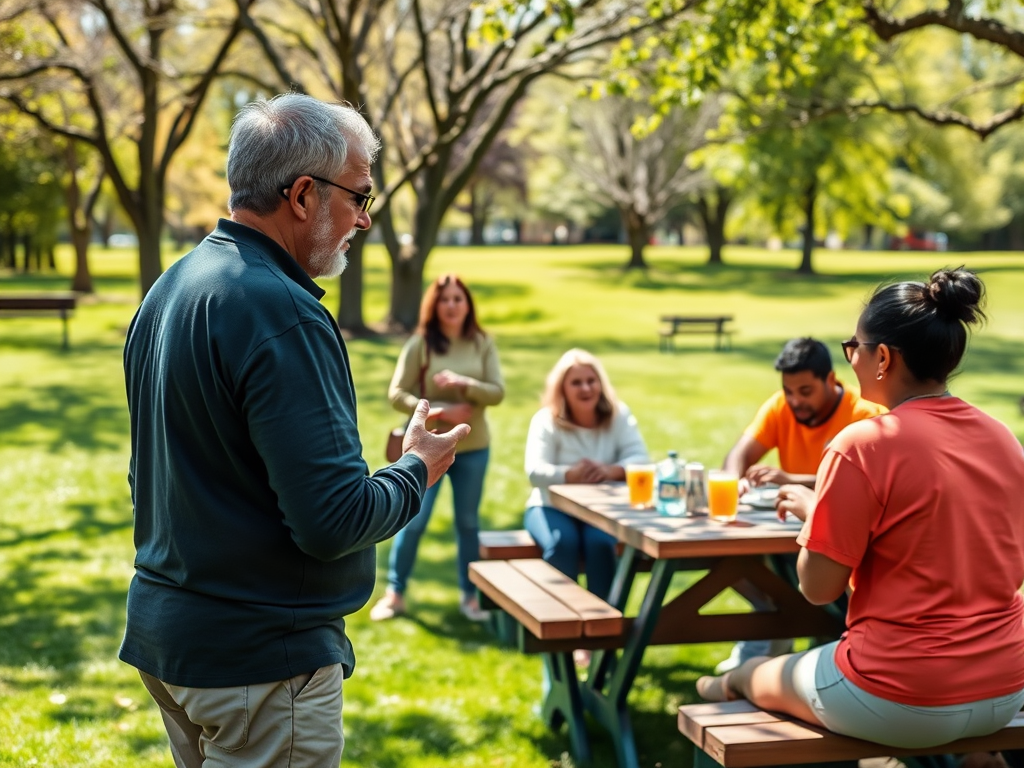In a world where digital interactions increasingly replace face-to-face connections, the need for fostering a sense of community has never been more vital. Facebook Groups stand out as a significant platform that not only connects like-minded individuals but also encourages deeper relationships within these networks. Far from being just a collection of members, a well-managed Facebook Group can create a thriving community providing support, knowledge-sharing, and social engagement. Utilizing strategic methods, you can turn a simple group into an informative and interactive space that resonates with members. This article explores how to build and nurture these vibrant communities through Facebook Groups.
Understanding the importance of community is the first step toward success. Whether for personal growth or business purposes, engaging people around shared interests can foster loyalty and enhance collaboration. With millions of groups available, finding and establishing your niche can lead to fulfilling interactions that bring genuine value. Commitment to consistent engagement and transparent communication is crucial, especially as the digital landscape evolves. Explore the following sections to discover how to effectively establish, grow, and manage your Facebook Group.
The Benefits of Using Facebook Groups

Facebook Groups offer numerous advantages that can dramatically enhance community interaction and support. Below are some key benefits that highlight the power of using Facebook Groups:
- Targeted Audience Engagement: Groups allow you to connect with a specific audience, ensuring that discussions remain relevant and engaging.
- Sense of Belonging: Members can form bonds as they share similar interests, resulting in a deepened sense of belonging.
- Easy Content Sharing: Groups facilitate effortless sharing of resources, ideas, and experiences among members.
- Direct Feedback Mechanism: Facebook Groups provide an instant channel for feedback, enabling you to make informed decisions.
- Enhancing Brand Loyalty: For businesses, these groups offer a way of nurturing relationships that can lead to heightened brand loyalty.
Establishing Your Facebook Group

Creating a Facebook Group is the cornerstone of building your community. The process may seem straightforward, but attention to detail is crucial for establishing a successful group. Begin with defining your group’s purpose in clear terms that resonate with potential members. This clarity can attract the right individuals who share similar interests, leading to more vibrant discussions. Furthermore, choose the right privacy settings that align with your target demographic—this step is essential to ensure that your group is both welcoming and secure for discussions.
Consider the following elements when establishing your group:
- Group Name: Choose a name that clearly reflects the group’s purpose.
- Description: Write a compelling description that highlights what members can expect from joining.
- Cover Photo: Use an eye-catching cover photo to make the group visually appealing.
| Privacy Setting | Description | Ideal Use Case |
|---|---|---|
| Public | Anyone can see the group and its members. | Community or hobby groups seeking broad participation. |
| Closed | Only members can see posts, but the group is discoverable. | Support groups or niche interest areas where discussions require privacy. |
| Secret | Only invited members can see the group and its content. | Highly specialized groups needing confidentiality. |
Growing Your Community
After successfully establishing your Facebook Group, the next step is to focus on growth. A vibrant community doesn’t build itself—it requires active promotion and engaging content. Start by creating interactive posts that invite feedback and encourage conversations. It’s vital to harness various content types, such as polls, questions, and relevant articles, to keep the audience engaged. Pair this with regular member highlights or success stories, which can serve as motivation and foster a deeper connection among members.
Encouraging member participation is essential for forging stronger community ties. Ensure that members feel comfortable sharing their thoughts and experiences. You can also organize specific events or discussions on trending topics to keep the community lively. Here are several strategies to cultivate involvement:
- Host weekly live Q&A sessions to address member queries.
- Create themed discussions to spark interest.
- Encourage members to introduce themselves with a short post.
Managing and Moderating Your Group
Active moderation is essential to maintain a healthy community environment. Implementing clear group rules creates a framework for acceptable behavior and sets expectations for participation. Clearly communicating these guidelines can prevent misunderstandings and foster respect among members. Address conflicts promptly, as unresolved issues can diminish the positive atmosphere within the group.
Additionally, consider establishing roles within the group to help with management. User-generated content is valuable, so highlight contributions that provide immense value to the community. Encourage members to act as stewards of the space by recognizing their efforts and facilitating discussions. Below are best practices for managing your group:
- Regularly review and update group guidelines as needed.
- Encourage members to provide feedback on group activities.
- Utilize moderation tools available on Facebook to maintain decorum.
Conclusion
Building a community through Facebook Groups is a rewarding journey that takes dedication and thoughtful strategy. While it may seem challenging to foster engagement in an online environment, the right approach can lead to meaningful connections and collaborative interactions. By utilizing the strategies outlined in this article, you can create an inviting space where members feel valued and motivated to participate actively. Embrace the process as an opportunity for growth and connection, and watch as your Facebook Group evolves into a thriving community.
Frequently Asked Questions
- What types of groups can I create on Facebook? You can create various groups, including hobby-based, professional networking, and support communities.
- How can I keep my Facebook Group active? Regularly post engaging content and encourage member interactions to keep the conversation flowing.
- What privacy settings should I choose for my group? Consider your community’s goals—public, closed, or secret settings serve different purposes based on desired member accessibility.
- How do I handle negative comments in my group? Address negative comments constructively, and don’t hesitate to remove posts that violate your group’s guidelines.
- Can Facebook Groups help with business marketing? Yes, businesses can use Facebook Groups to nurture customer relationships, gather feedback, and create a sense of community around their brand.


